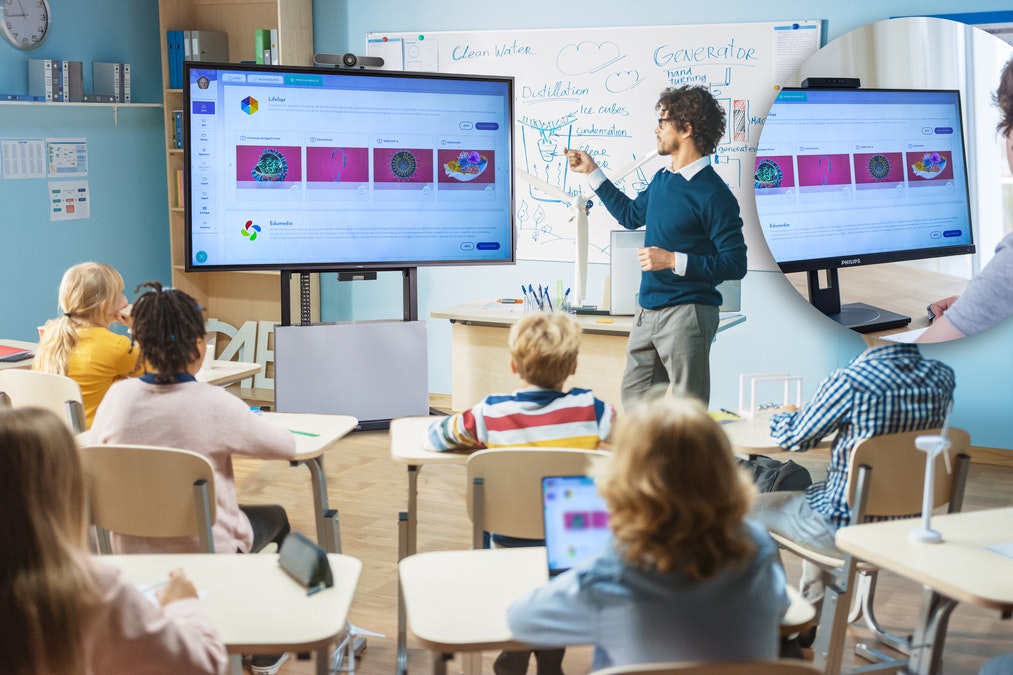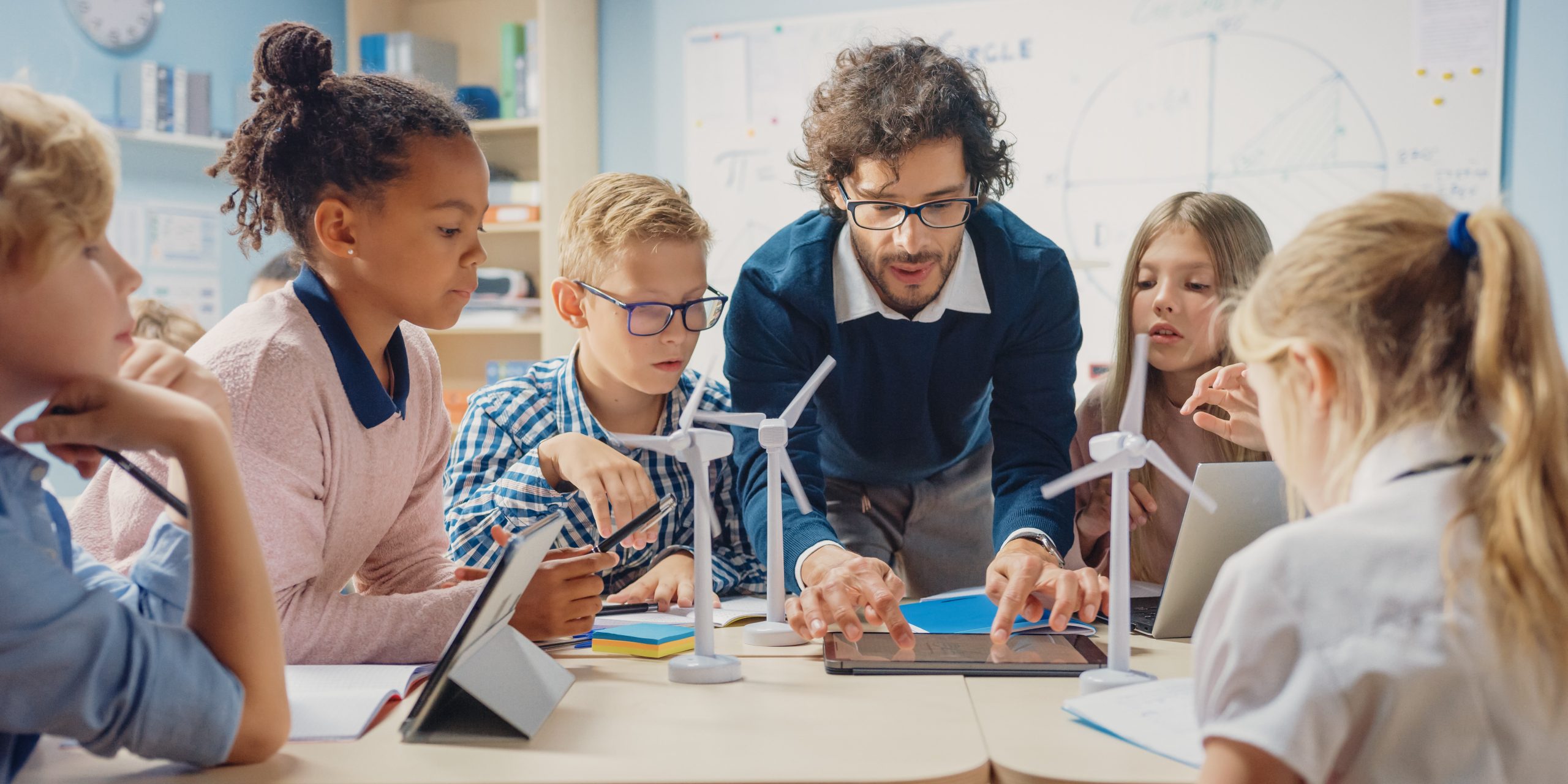Top Primary Science Tuition Singapore to Help Your Child Excel
Top Primary Science Tuition Singapore to Help Your Child Excel
Blog Article
Discover the Necessary Advantages of Comprehending Main Scientific Research for Young Learners
The importance of primary scientific research education for young students expands far past mere understanding purchase; it serves as a fundamental pillar in developing vital abilities such as critical thinking, analytical, and creativity. Engaging with clinical ideas through inquiry-based and interactive tasks not only cultivates curiosity yet additionally prepares for resistant, positive students. As we check out these advantages further, it comes to be clear that the ramifications for future academic and personal development are profound. What details strategies can educators use to optimize these benefits?
Enhancing Essential Thinking Skills
Promoting crucial thinking skills in young students is necessary for their cognitive development and future scholastic success. Critical thinking enables children to evaluate details, review proof, and make informed choices, which are vital skills in today's information-rich society. By taking part in clinical questions, young students can improve these skills as they check out ideas with thinking, observation, and trial and error.
In key science education, teachers can assist in vital reasoning by encouraging pupils to ask inquiries, develop theories, and perform experiments. This hands-on strategy enables children to practice analytical and develop sensible reasoning abilities. When pupils explore the homes of materials or the concepts of activity, they learn to assess their findings seriously and attract final thoughts based on proof.
Furthermore, discussions and collaborative projects can advertise vital reasoning by providing possibilities for students to express their ideas, difficulty presumptions, and take into consideration diverse perspectives. By creating a helpful setting that values inquiry and representation, teachers can support critical assuming abilities that empower young learners to end up being independent thinkers and lifelong learners. Eventually, improving these abilities lays a durable structure for their future scholastic undertakings and individual development.
Fostering Curiosity and Expedition

Main scientific research education provides a structured atmosphere where young students can discover various sensations through hands-on experiments and monitorings. By permitting them to engage with products and engage in inquiry-based discovering, teachers develop opportunities for children to formulate hypotheses, check their concepts, and reason. Such experiences support a feeling of wonder and enjoyment about science.

Building Self-confidence in Problem Addressing
Structure confidence in analytical is an important component of main science education and learning that encourages young learners to approach difficulties with resilience and imagination - primary science tuition Singapore. They create crucial skills in crucial thinking and analysis when children are encouraged to engage with scientific ideas with hands-on activities and inquiry-based knowing. This process not just improves their understanding of clinical principles yet likewise cultivates a feeling of ownership over their learning
To develop confidence, teachers should produce a supportive setting where mistakes are deemed opportunities for growth instead of failings. This motivates trainees to take risks and check out numerous options to problems. By offering scaffolding and guidance, educators can assist students navigate complicated tasks, progressively raising Related Site their freedom in problem-solving circumstances.
Moreover, joint learning experiences, such as group projects or experiments, can even more boost trainees' self-confidence as they find out to express their ideas and listen to others' perspectives. These interactions support social abilities and reinforce the concept that problem-solving is frequently a collective venture. Ultimately, growing confidence in problem-solving prepares young learners for future academic obstacles and equips them with the devices essential for long-lasting learning.
Urging Creative Thinking and Innovation
In the realm of main science education, motivating imagination and advancement is essential for cultivating a dynamic discovering atmosphere. By fostering a culture where young students can check out concepts and experiment openly, educators assist students establish essential thinking skills and a passion for discovery. Creativity in scientific research urges children to ask concerns, design theories, and take part in hands-on tasks that stimulate their imagination.
Incorporating flexible jobs and inquiry-based knowing right into the curriculum allows pupils to reveal their unique point of views and options. When charged with fixing a trouble related to their environment, pupils can conceptualize several approaches, leading to innovative end results that showcase their originality. This not only strengthens their understanding of clinical ideas yet likewise imparts a feeling of ownership over their knowing process.
Additionally, innovative science education and learning supports collaboration amongst peers, as pupils commonly share concepts and improve one an additional's understandings - primary science tuition Singapore. This collective spirit promotes not just technology but also crucial social abilities. Therefore, by focusing on creativity and technology in primary science education and learning, we equip young students to assume critically, embrace obstacles, and imagine possibilities, laying a solid foundation for long-lasting knowing and expedition
Planning For Future Knowing Obstacles
Young students' ability to navigate future discovering obstacles depends upon a solid structure in primary scientific research education and learning. This foundational understanding equips trainees with crucial believing skills and a methodical method to analytical, vital for tackling intricate problems in an ever-evolving globe. Website Key scientific research fosters inquiry-based discovering, motivating students to ask questions, discover hypotheses, and engage in hands-on experiments.
As they create these abilities, learners become experienced at assessing information, recognizing patterns, and drawing educated final thoughts. Such competencies are crucial not just in clinical fields however also in design, mathematics, and modern technology (STEM), where interdisciplinary understanding is progressively essential.
In addition, main science education and learning cultivates a feeling of interest and strength in young learners, allowing them to view obstacles as chances for development. As they experience and get rid of barriers in their scientific explorations, they develop self-confidence in their ability to adjust and innovate.
Ultimately, a strong foundation in key science not only prepares young learners for scholastic pursuits however additionally equips them with the tools essential for long-lasting understanding and adaptability in a swiftly changing international landscape. By buying primary scientific research education, we are investing in the future potential of our learners.
Conclusion
Understanding key science is essential for young students, as it cultivates important reasoning, curiosity, and creativity. Engaging with clinical principles via hands-on experiments constructs and enhances problem-solving capabilities durability. This fundamental expertise not just outfits students to evaluate information and recognize patterns however also nurtures an inquiry-based attitude. Eventually, the benefits of key science education prepare kids for future scholastic pursuits and impart lifelong understanding routines crucial for prospering in an ever-evolving world.
The importance of primary science education and check my source learning for young students prolongs far beyond mere knowledge purchase; it serves as a fundamental column in establishing important skills such as essential reasoning, analytical, and imagination. By developing a supportive atmosphere that values questions and reflection, educators can nurture crucial believing skills that empower young students to come to be independent thinkers and long-lasting learners. Thus, by focusing on creative thinking and development in primary scientific research education, we empower young students to think critically, accept challenges, and envision opportunities, laying a strong structure for long-lasting discovering and expedition.
Young students' ability to browse future knowing difficulties pivots on a solid structure in main science education and learning.Recognizing primary scientific research is critical for young learners, as it fosters crucial reasoning, inquisitiveness, and creative thinking.
Report this page